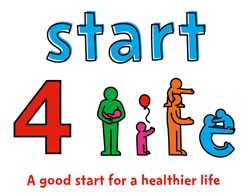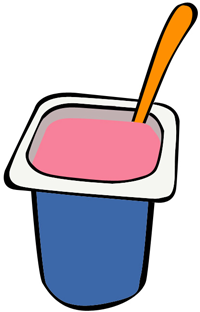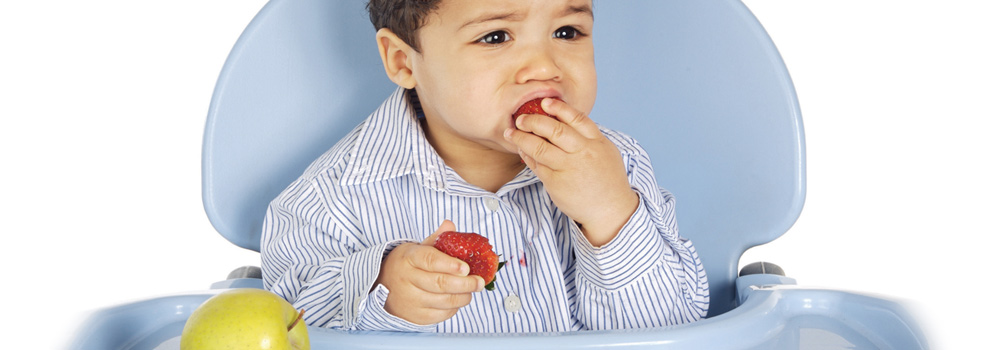Living a healthy lifestyle means many things: having fun, eating well, being active, staying safe, getting enough sleep, taking care of our minds and bodies. Practical things too like making sure your child visits the Dentist regularly, their immunisations are kept up to date, they are receiving their free daily vitamin drops and that they attend health and development checks. Look out and be aware of your child’s health in order to prevent illness and discuss any concerns with your Health Visitor. Developing a healthy attitude early on will help to ensure they become healthy throughout life.
Being physically active every day is important for healthy growth and development and impacts on their developing social skills. Babies should be encouraged to be active from birth. Before your baby begins to crawl, encourage them to be physically active by reaching and grasping, pulling and pushing during supervised floor play, including tummy time.
Minimise the amount of time children spend sitting watching TV, in a buggy, playing computer games and travelling by car, bus or train. Try to make exercise fun and part of everyday life for all the family.
The first two years of life are a critical time for brain development. TV and other electronic media can get in the way of exploring, playing, thinking and interacting, which all encourage learning and healthy physical and social development. Children who consistently spend more than four hours per day watching TV are more likely to be overweight (less time for play). TV and electronic media can limit communication and speech skills, resulting in the child preferring to listen rather than take part in a real-life conversation. TV can affect sleep patterns too.

Many parents are unaware of the dangers of childhood obesity but by following the top tips below you can make a difference to your child’s health.
1. Sugar Swaps - Swapping sugary snacks and drinks for ones that are lower in sugar can make a huge difference.
2. Meal Time - It’s important for kids to have regular, proper meals as growing bodies respond better to routine.
3. Snack Check - Many snacks are full of the things that are bad for us - sugar, salt, fat and calories. So try and keep a careful eye on how many the kids are having.
4. Me Size Meals - It’s important to make sure kids get just the right amount for their age.
5. 5 A Day - 5 portions of fruit and/or vegetables a day.
6. Cut Back Fat - Too much fat is bad for us. It’s not always easy to tell where it’s lurking.
7. Up and About - Most of us spend too long sitting down. Keep active. Encourage your child to walk, you may need to use child safety reins.
Source: www.nhs.uk/start4life
DoH 2009 (www.dh.gov.uk/obesity).
Salt and Sugar is added to nearly all processed products. Three-quarters of the salt and sugar we eat is already in the food, the rest is what we add to cooking or shake on our meals. Children need less than 5g of salt a day (2g sodium).
 |
Juice drink
23g sugar
(5 teaspoons)
|
 |
Pizza slice
2.8g salt |
 |
Fromage frais
12.4g sugar
(2 teaspoons)
|
1
How much exercise should my child have daily?
2
Children who can walk on their own should be active every day for at least three hours. This should be spread throughout the day, indoors and outside.
3
Safe, active play, such as using a climbing frame, riding a bike, playing in water, chasing games and ball games should be supervised.





